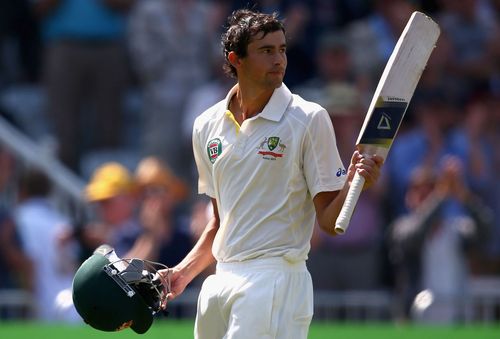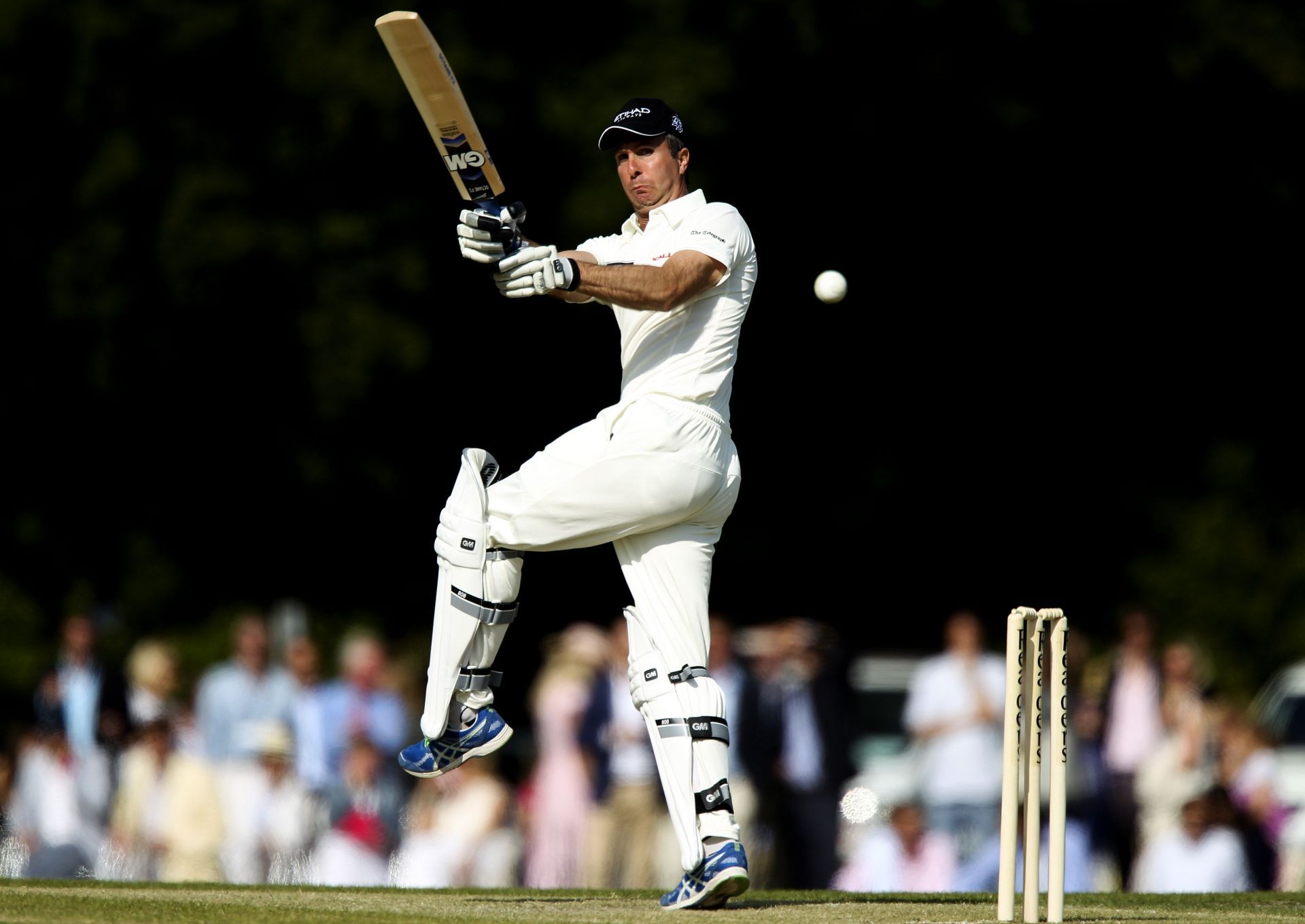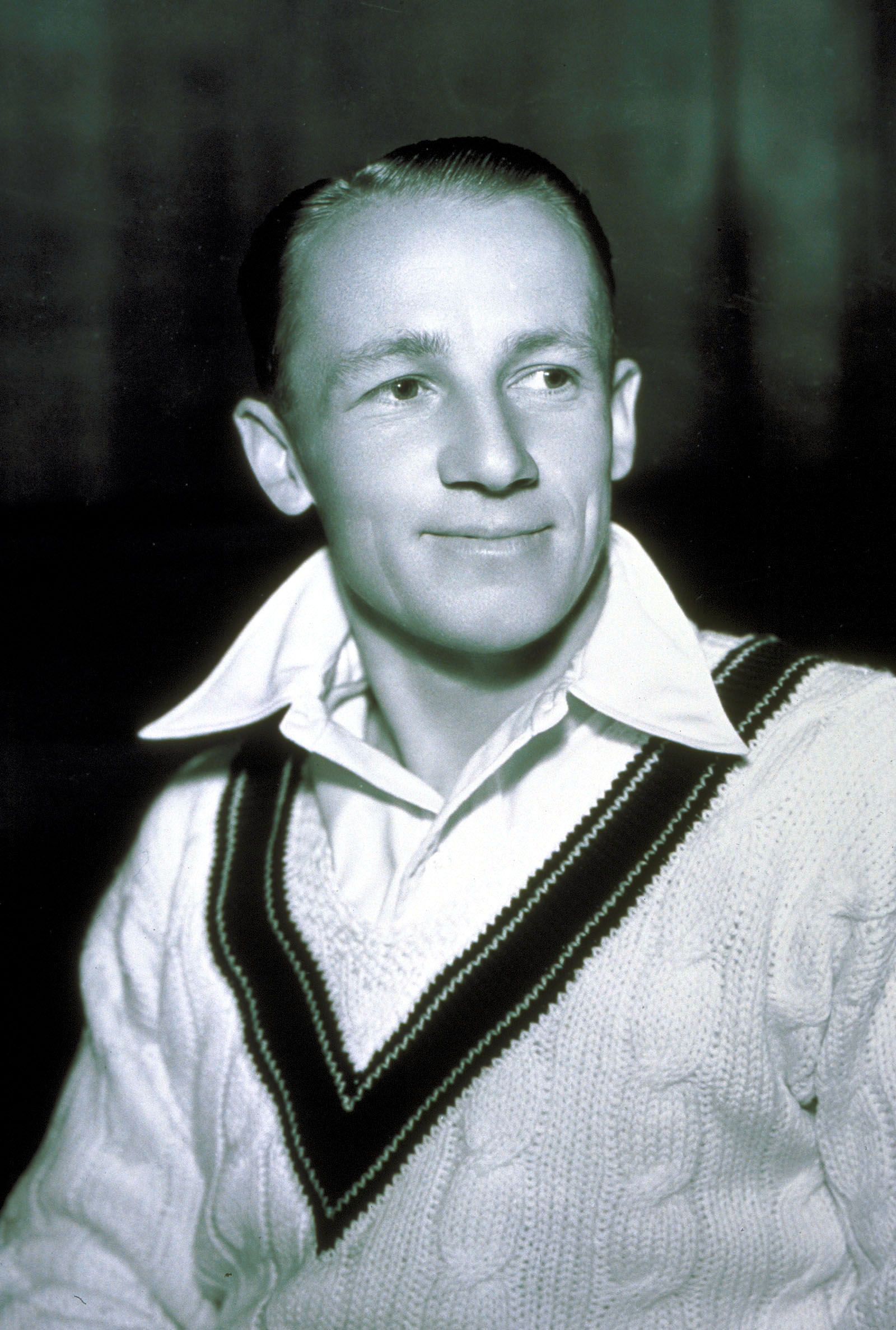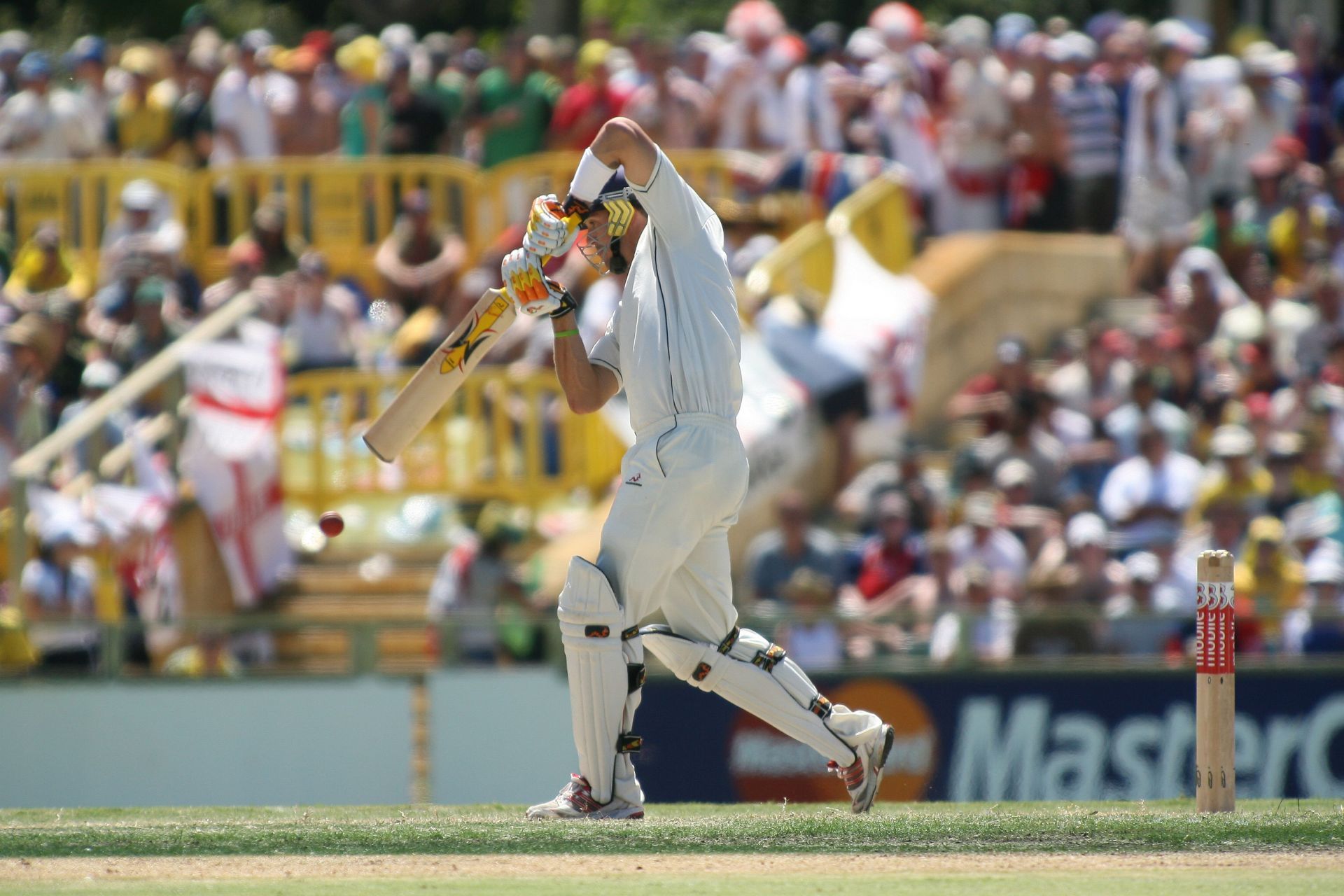
Top 5 Ashes knocks in a losing cause ft. Kevin Pietersen
The 2023 Ashes has lived up to its hype of producing captivating matches as Australia took a 2-0 lead following their 43-run victory over England in the second Test at Lord’s. Despite a late assault from Ben Stokes in the first two sessions of Day 5, the hosts were eventually bundled out for 327 once their skipper was dismissed by Josh Hazlewood in the 371-run chase.
Stokes threatened to emulate his heroics from the Headingley Test of the 2019 Ashes, when his unbeaten 135 helped England chase 358 even after they were reduced to 286/9 at one stage.
The England captain did one better this time, hammering nine sixes and as many boundaries in his breathtaking innings of 155 from 214 balls. Stokes took the risk of clearing the ropes even when Pat Cummins had deployed nine fielders on the boundaries.
Short and good length deliveries from Mitchell Starc and Josh Hazlewood were dispatched into the stands as the crowd at Lord’s went completely berserk. Nevertheless, their hopes of crossing over the line faded away once Stokes sliced a wobble seam in-ducker from Hazlewood to Alex Carey. It was an innings that defined Stokes’ determination to hang around in crunch situations.
On that note, let’s take a look at our top five picks of valiant knocks that ended up in a losing cause in Ashes Tests.
5) Ashton Agar (98, 2013, Nottingham)
Ashton Agar holds the record for the highest score by a No. 11 batter in Test cricket. Making his Test debut at the age of 19 in the first game of the 2013 Ashes series in Nottingham, Agar scored 98 from 101 balls to break Tino Best’s record of 95. Agar was involved in a 163-run partnership with the late Phil Hughes (81*), which is the second-highest for the 10th wicket in the red-ball format.

Agar joined Hughes at the crease when Australia were in dire straits at 117/9. The left-arm spinner from Western Australia was fearless with the bat as the tourists gained a decent lead of 65 in the first innings. England eventually won the match by just 14 runs as they bowled out Australia for 296 in a 311-run chase.
Unfortunately, Agar didn’t get enough opportunities after his sensational knock on debut, having played just five Test matches in the last decade.
4) Steve Waugh (102, 2003, Sydney)
In the home Ashes series of 2002-03, Steve Waugh was under the pump ahead of the final Test at the Sydney Cricket Ground, albeit Australia had already clinched the series with an unassailable lead of 4-0. Scores of 12, 7, 34, 53, 77 and 14 didn’t justify the prowess of the then-Australia skipper.
It was just before the third Test in Perth that Waugh promised Trevor Hohns, Australia’s chairman of selectors back then, that he would take a call about his future in Test cricket if he didn’t perform in the last two Tests.

Having already clinched the Ashes urn after the comprehensive victory at Perth, the spotlight was on Waugh over his retirement at the end of the five-Test series. As promised in the pre-match press conference ahead of the final game in Sydney, Waugh played a career-defining knock.
After England posted 362 in the first innings, Australia were teetering on 56 for 3. The second-biggest crowd at the SGC welcomed the local lad with a raucous reception as Waugh joined forces with Damien Martyn. On the last ball of the second day, Waugh smashed Richard Dawson for a boundary to notch up his 29th Test hundred, one of the best knocks in Ashes. He was dismissed on 102 in the early morning of Day 3.
Waugh added 91 runs with Adam Gilchrist (133) for the sixth wicket as Australia managed to pick up a miniature lead of just one run in the first innings. The hosts faltered in the mammoth chase of 452, skittling out at 226. England bagged a consolation win by 225 runs to avoid the whitewash.
3) Michael Vaughan (177, 2003, Adelaide)
Michael Vaughan’s performance was remarkable in the 2002-03 Ashes Down Under, where England were crushed 4-1. Vaughan finished as the highest run-getter in the series with 633 runs at an average of 63.30, including three centuries. It was a year (2002) that the Yorkshireman enjoyed in Test cricket with 1,481 runs in 14 matches at 61.70.
After being dismissed twice by Aussie great Glenn McGrath in the Ashes opener for scores of 33 and 0 respectively, Vaughan produced a batting masterclass against the pace troika of McGrath, Jason Gillespie, and Andy Bichel in the second Test. He racked up two sixes against Bichel on the first morning before taking the attack to McGrath and Shane Warne.

The English opener hit 22 fours and three sixes en route to his first ton of that wretched tour for his side. He scored 177 off 306 balls before getting caught by Warne off Bichel’s bowling on the final ball of the first day. It took no time for England to fumble following Vaughan’s dismissal at 295/4. They added just 47 runs for the last six wickets to post 342 in the first innings.
Riding on a phenomenal knock by Ricky Ponting (154) and a brilliant fifty by Damien Martyn (95), Australia declared at 552/9, taking a convincing lead of 210 runs. McGrath and Warne combined to rattle the English batting order as the tourists’ innings folded up on 159. Australia won by an innings 51 runs to take a 2-0 lead.
2) Donald Bradman (131, 1930, Nottingham)
The great Donald Bradman recorded astounding figures - 974 runs in seven innings - in the 1930 Ashes in England without wielding a single six off his willow. This happens to be the most runs scored by a batter in a Test series to date. Australia clinched the series with great wins at Lord’s and The Oval, however, the visitors went 1-0 down in the series opener at Trent Bridge.
The weather conditions for that game were constantly changing, which made things difficult for the Australians to bat on the afternoon of Day 2. The hot sunshine during the day turned into heavy rainfall during the night and the next morning. They put up a paltry score of 144 in the first innings in response to England’s 270.

England set their opponents a formidable target of 429 to chase in the second innings. Australia were comfortably cruising at 229 for 3 at one stage thanks to a fine knock from Bradman, 131 runs off 287 balls, with the help of 10 fours. England leg-breaker Walter Robins cleaned up Bradman to shift the momentum in England’s favour. Australia's lower middle order stuttered and were eventually bowled out for 335.
1) Kevin Pietersen (158, 2006, Adelaide)
The visitors suffered an overwhelming defeat by 277 runs in the first Test at the Gabba. England came into the series as the holders of the 2005 Ashes, dubbed as one of the greatest Test series in the history of the game. Ricky Ponting and his men were buoyant to avenge the 2-1 loss from a year and a half ago.
Coming to the Adelaide Test, England named an unchanged playing XI as Andrew Flintoff won the toss and elected to bat first. Australian pacer Stuart Clark removed England openers Strauss and Alastair Cook in the first session. A 113-run stand between Ian Bell and Paul Collingwood ended with the former’s dismissal to a Brett Lee bouncer. Kevin Pietersen joined Collingwood at the crease after England were 158 for 3.
The lanky England player was welcomed by another short delivery from Lee. But, Pietersen was unperturbed and pulled it towards the mid-wicket region for a boundary. Pietersen and Collingwood build England’s innings with contrasting batting styles.
The South Africa-born batter stuck to his attacking role. Pietersen clubbed three boundaries against Glenn McGrath in the first session of Day 2 to move into the nineties. A single off Stuart Clark helped him to complete his sixth ton in the red-ball format. Pietersen ended up scoring 158, the third time he had breached the 150-mark in his Test career.

An entertaining knock from the Hampshire batter included 15 boundaries and a six. The highlight of that innings was Pietersen taking on his Hampshire teammate Shane Warne as the spin wizard persisted with the lines around the leg-stump. The England No. 5 was run out by Ponting. Collingwood went on to score his maiden double-ton in Test cricket. He edged to the keeper off Clark’s bowling to end the 310-run partnership with Pietersen.
England declared their innings at 551 for 6 following Flintoff’s 38 off 67 balls. Australia rode on the excellent knocks of Ricky Ponting (142) and Michael Clarke (124) to bridge the gap at 513 before they folded up England’s second innings for a minuscule 129. The hosts chased down the target of 168 in 32.5 overs to go 2-0 up in the five-match series.